13 Dining Rules That Waitstaff Wish You Knew Before You Sat Down
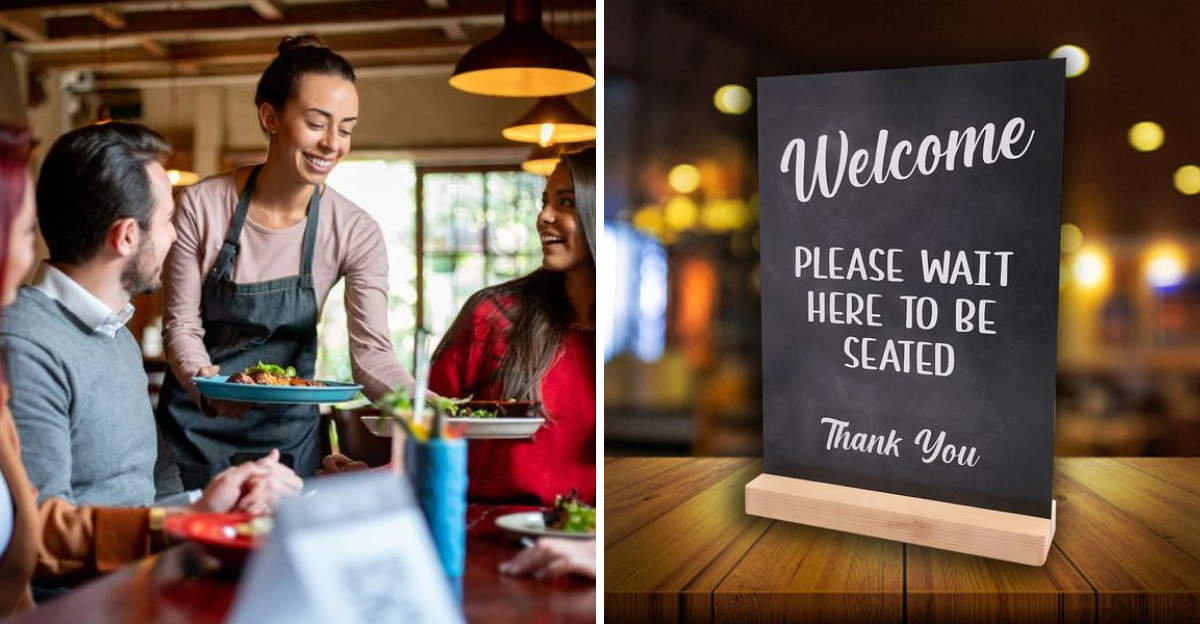
Dining out is more than just enjoying a meal; it involves a set of unwritten rules that ensure a pleasant experience for everyone. These 13 dining etiquette tips, cherished by waitstaff, enhance the dining experience by fostering respect and efficiency. By embracing these simple courtesies, diners can contribute to a smoother restaurant operation and a more enjoyable time for all.
1. Don’t Seat Yourself Unless It’s Clearly Allowed
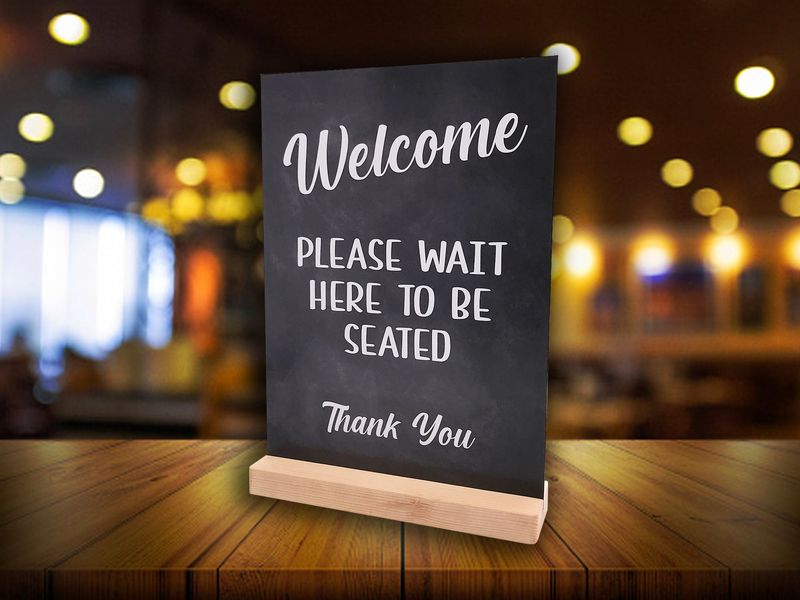
Imagine walking into a bustling restaurant and finding your own table. Seems efficient, right? However, seating yourself can disrupt the flow and confuse the waitstaff. Restaurants often have organized seating plans, ensuring balanced workload and service efficiency. A simple sign indicating “Seat Yourself” is your only green light to proceed without assistance. Otherwise, wait to be greeted by the host. This small act of patience sets the tone for a respectful dining experience, allowing staff to cater to your needs without unexpected surprises. It’s the first step to a seamless meal.
2. Know What You Want Before Flagging Down Your Server
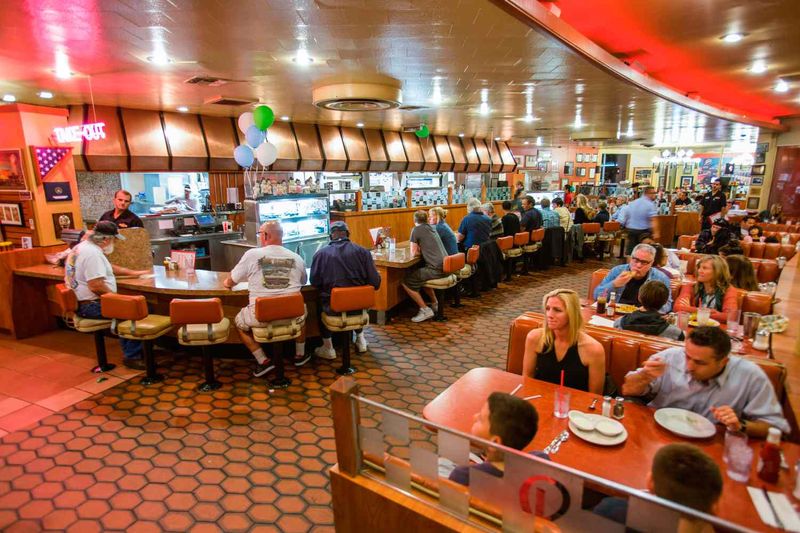
Picture this: you wave down a server, only to stall while deciding between the pasta or the salad. Meanwhile, other tables await their turn, and the server’s time is stretched thin. Being prepared before calling your server is not only considerate but streamlines service for everyone involved. Servers appreciate guests who know their preferences, enabling them to provide timely and attentive service. This simple act demonstrates respect for both the staff’s time and the dining experience of others.
3. Be Honest About Food Allergies or Dietary Needs—Early
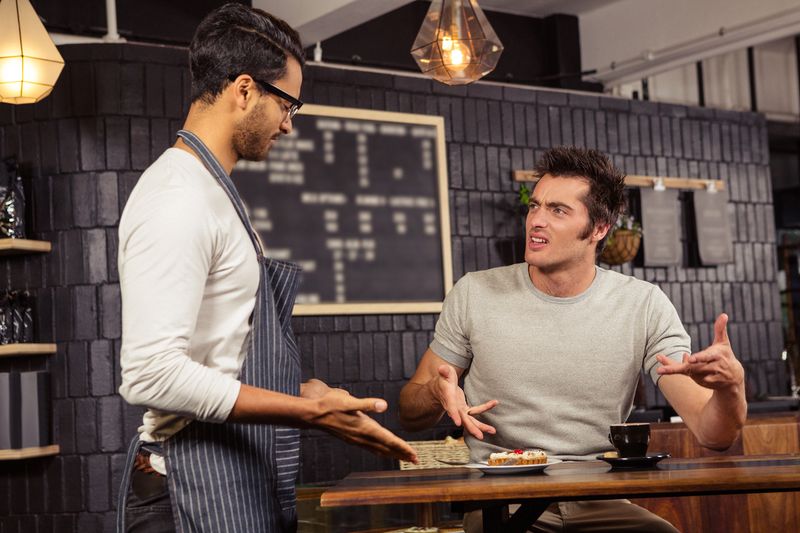
Having a food allergy or dietary restriction is nothing to be shy about. In fact, mentioning such needs upfront can prevent potential hazards and ensure a safe dining experience. Transparency from the get-go allows servers to communicate effectively with the kitchen, avoiding any last-minute surprises or delays. It’s not just about your safety, but also about maintaining the restaurant’s efficient workflow. A preemptive conversation about allergies or dietary needs is a proactive step that benefits everyone involved, ensuring your meal is both enjoyable and safe.
4. Don’t Stack or Rearrange Dirty Plates

You may think you’re helping by stacking plates, but this well-intentioned gesture can complicate the clearing process. Servers are trained to handle dish removal efficiently, with methods that minimize risk of spills and maximize speed. Altering this order might slow them down or create unnecessary awkwardness. Leaving plates as they are allows servers to perform their tasks with ease, ensuring the table is swiftly reset for the next guests. Your thoughtful restraint aids in maintaining the restaurant’s rhythm and service efficiency.
5. Don’t Blame the Server for Kitchen Mistakes
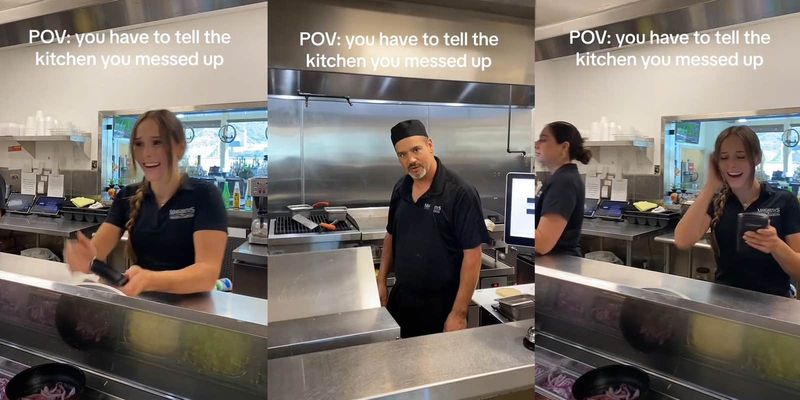
Ever received a dish that wasn’t up to par? It’s easy to vent your frustrations at the nearest staff member, but remember: your server didn’t cook your meal. They’re your ally in rectifying any culinary mishaps. Kindly expressing your concerns to your server allows them to advocate on your behalf, expediting a resolution. This constructive communication fosters a positive atmosphere and often leads to a better outcome. Trust in your server’s ability to mediate and improve your dining experience.
6. Avoid Using Your Phone When Ordering

In today’s digital era, phones are a constant companion, but they can interrupt the dining experience. Pausing a conversation to answer a text or check social media while ordering can delay service for you and others. Giving your full attention during the ordering process is a small gesture that enhances efficiency and shows respect for your server’s time. By focusing on your interaction with the staff, you contribute to a smoother dining experience and ensure your needs are met accurately.
7. Be Mindful of Peak Times
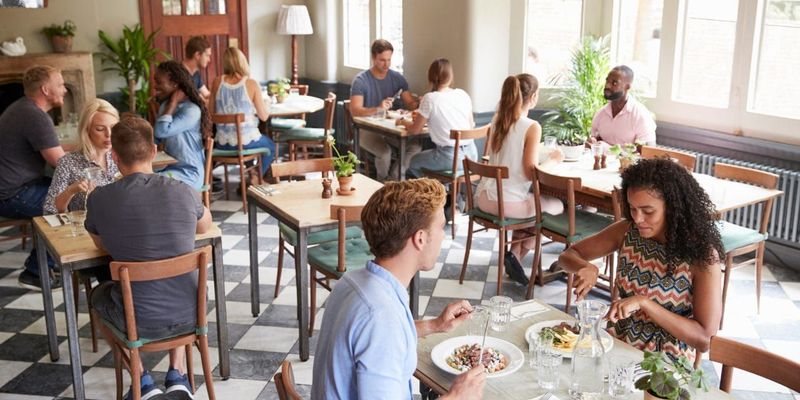
During peak dining hours, restaurants are bustling with activity. Servers hustle between tables, aiming to provide quality service despite the rush. Understanding this dynamic can temper expectations and inspire patience. A little empathy goes a long way in such scenarios, as servers appreciate diners who recognize the demands of busy periods. By maintaining reasonable expectations and a positive attitude, you support the staff’s efforts to deliver efficient and pleasant service despite a crowded environment.
8. Tip Fairly—Even for Small Orders
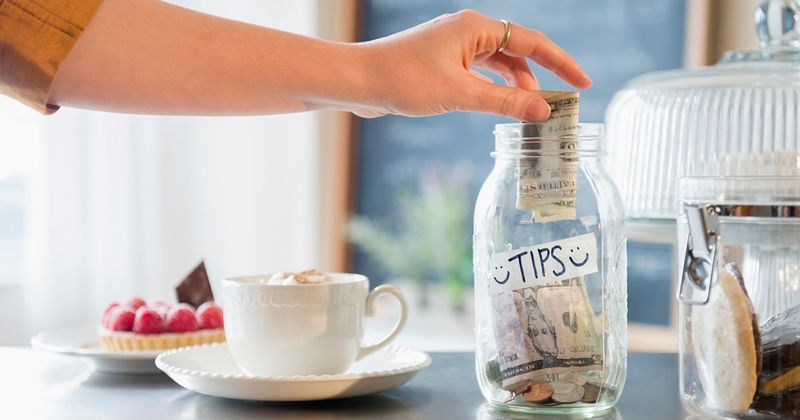
Imagine ordering just a coffee but leaving a generous tip. Many servers rely on tips as a significant part of their income, and small orders don’t diminish their service efforts. Fair tipping acknowledges the value of service provided, regardless of the order size. It’s a gesture that reflects gratitude and supports the livelihood of those who make your dining experience enjoyable. Remember, even during brief encounters over small orders, your generosity can make a big difference in someone’s day.
9. Don’t Camp Out After Paying the Bill

After a delightful meal, the temptation to linger can be strong, especially in cozy eateries. However, occupying a table after settling the bill can impact the server’s ability to serve new guests and earn tips. Being mindful of this helps maintain the restaurant’s turnover and allows staff to continue providing excellent service to others. If you wish to continue your conversation, consider moving to a lounge area or nearby café. This courteous move ensures that tables are readily available for incoming diners, supporting the restaurant’s flow.
10. Mention Special Occasions Ahead of Time
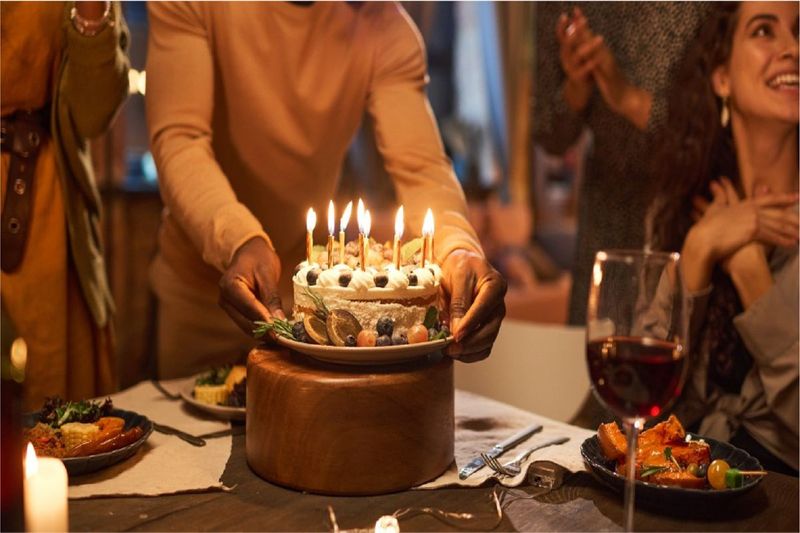
Nothing sparks joy like a surprise celebration, whether it’s a birthday, anniversary, or special milestone. Informing the restaurant of your occasion in advance enables them to prepare thoughtful touches, such as a complimentary dessert or personalized service. This foresight not only enhances your experience but also allows the staff to manage their duties more efficiently. By communicating your special day early, you contribute to a memorable dining experience, crafted with care and attention to detail by the restaurant’s team.
11. Don’t Let Kids Roam Freely

Restaurants are not playgrounds, and unsupervised children can face potential hazards, from hot dishes to busy aisles. Keeping little ones at the table ensures their safety and respects the dining experience of others. It’s about creating an environment where everyone can enjoy their meal comfortably. Servers and fellow diners appreciate parents who manage their children’s dining etiquette, as it contributes to a harmonious and enjoyable atmosphere. Encouraging children to remain seated and engaged fosters a positive experience for all involved.
12. Respect the Closing Time
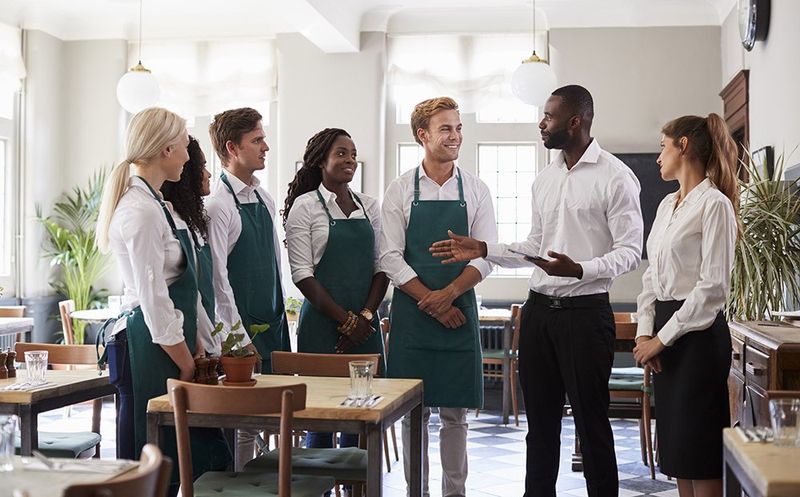
Arriving just before closing time might seem like squeezing in a quick meal, but it can be unfair to the staff. They still have tasks to complete after hours, from cleaning to setting up for the next day. Respecting the closing time ensures that staff can finish their duties without added pressure, allowing them to maintain the establishment’s standards of cleanliness and readiness. It’s a considerate action that acknowledges the hard work done behind the scenes to provide a pleasant dining experience for all.
13. Say Thank You
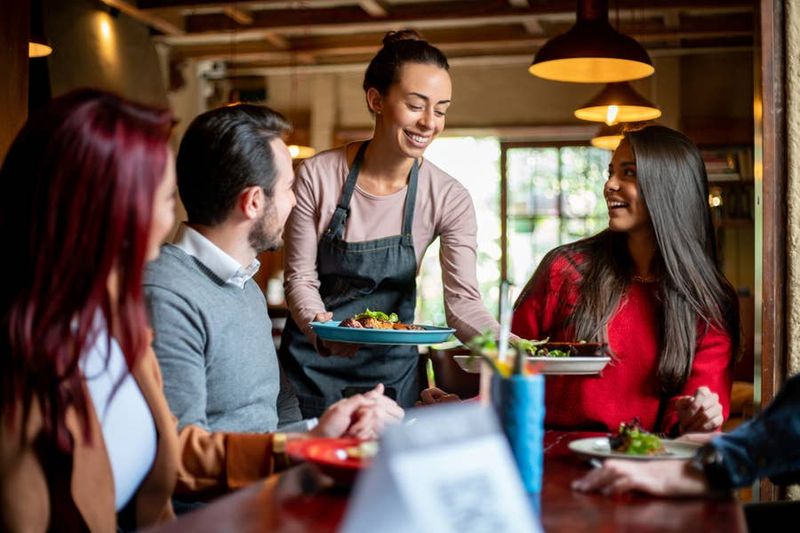
Kindness costs nothing, yet its impact is profound. A simple “thank you” at the end of your meal can significantly uplift a server’s day, especially during busy shifts. This expression of gratitude acknowledges the effort put into providing you with a pleasant dining experience. Servers who feel appreciated are encouraged to continue delivering quality service, benefiting future diners as well. So, as you conclude your meal, remember to offer a heartfelt thanks to those who have made your experience enjoyable and memorable.
